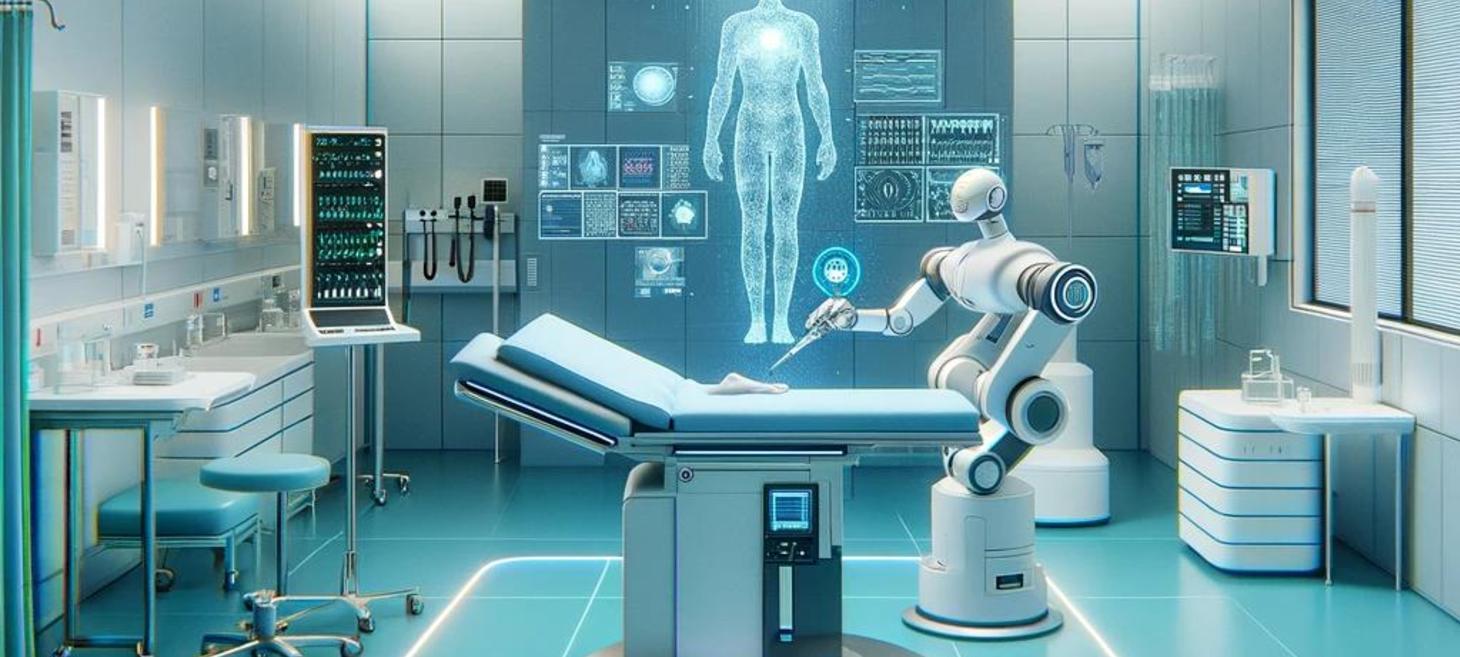Introduction

Back again!
Hello everyone,
It's been a moment since our last rendezvous, but we're thrilled to announce our grand return, bursting at the seams with a collection of captivating articles that delve into the revolutionary intersection of AI and healthcare. This edition is packed with groundbreaking insights, exploring how artificial intelligence is redefining the frontiers of medical science, from pioneering diagnostics to tailor-made treatments.
Get ready to immerse yourself in a world where technology meets medicine, promising a future of unparalleled health innovations and transformative care. Join us on this exhilarating journey as we unveil the wonders of AI in healthcare, a topic that's not only fascinating but is reshaping lives and healing futures. Don't miss out on this must-read issue that's sure to intrigue, inspire, and ignite conversations!
Happy reading!
Cutting-edge Innovations

Revolutionizing heart health: AI's role in predicting heart attacks
Researchers at Cedars-Sinai have developed an AI tool that accurately measures the volume and density of heart fat from CT scans, providing new insights into heart disease risk. This quick and precise method could transform how doctors assess and manage cardiovascular health, with studies showing a strong correlation between heart fat characteristics and the risk of heart-related issues. The findings, supported by substantial patient data, highlight the potential of AI in enhancing diagnostic approaches in cardiology.
AI and Patient Outcomes

Scan or Scam? The full-body MRI debate heats up
Ezra's venture into full-body MRI scans, spearheaded by biohacker Bryan Johnson, is stirring a health tech revolution with a recent $21 million boost. The company's vision is to make these comprehensive scans routine for early disease detection, utilizing AI to streamline the process. However, this disruptive approach sparks controversy among medical experts who warn of potential overdiagnosis and overtreatment, highlighting the delicate balance between innovation and ethics in the quest for longevity.
AI and Medical Professionals

Nurse forward: Revolutionizing nursing workflows for a healthier tomorrow
"Unlocking Nursing Excellence: A Strategy for the Future" offers a visionary approach to combat the nursing shortage. By reimagining nurses' roles, focusing on reducing administrative burdens through strategic delegation and technological innovation, the potential to reclaim up to 15% of their time emerges. This paradigm shift could effectively address the workforce deficit, equivalent to adding 300,000 nurses, thereby enhancing patient care and nurturing nurses' growth within the healthcare ecosystem.

Revolutionizing healthcare: The double-edged sword of generative AI
The article from Brookings discusses the impact of generative AI in healthcare, highlighting its potential to revolutionize routine information gathering, diagnosis, treatment, and post-treatment monitoring. However, it also addresses significant challenges, such as data privacy, transparency, and the need for informed consent. The piece advocates for policy reforms that ensure equitable access to AI technologies, emphasizing the importance of health information exchanges (HIEs) in democratizing data and preventing monopolies. A collaborative approach between healthcare professionals and AI developers is crucial for optimizing patient care and advancing medical research.
AI and Mental Health

Navigating the future of mental health: Unveiling the potential and pitfalls of AI
The WHO study on AI in mental health research highlights the potential benefits and significant challenges of using artificial intelligence. It emphasizes the need for careful evaluation of AI models for mental health services, pointing out methodological flaws and the importance of transparency and proper data management. The study also discusses the role of AI in understanding and managing mental health conditions, suggesting a cautious approach towards its implementation.
AI and Drug Discovery

Harnessing cellular waste: A $674 million leap towards disease-fighting drugs
VantAI and Bristol Myers Squibb have announced a groundbreaking partnership to develop new drugs using generative AI. This collaboration aims to create "molecular glues" that can recruit the body's protein degraders to target and eliminate disease-causing agents. These molecular glues represent a novel approach in drug development, potentially transforming the treatment landscape for various diseases. VantAI, emerging from the Roivant umbrella, leverages advanced AI models and graph theory to innovate in drug discovery. This strategic alliance, potentially worth over $3 billion across multiple collaborations, underscores the merging of biotechnology and AI to forge new pathways in medical science.